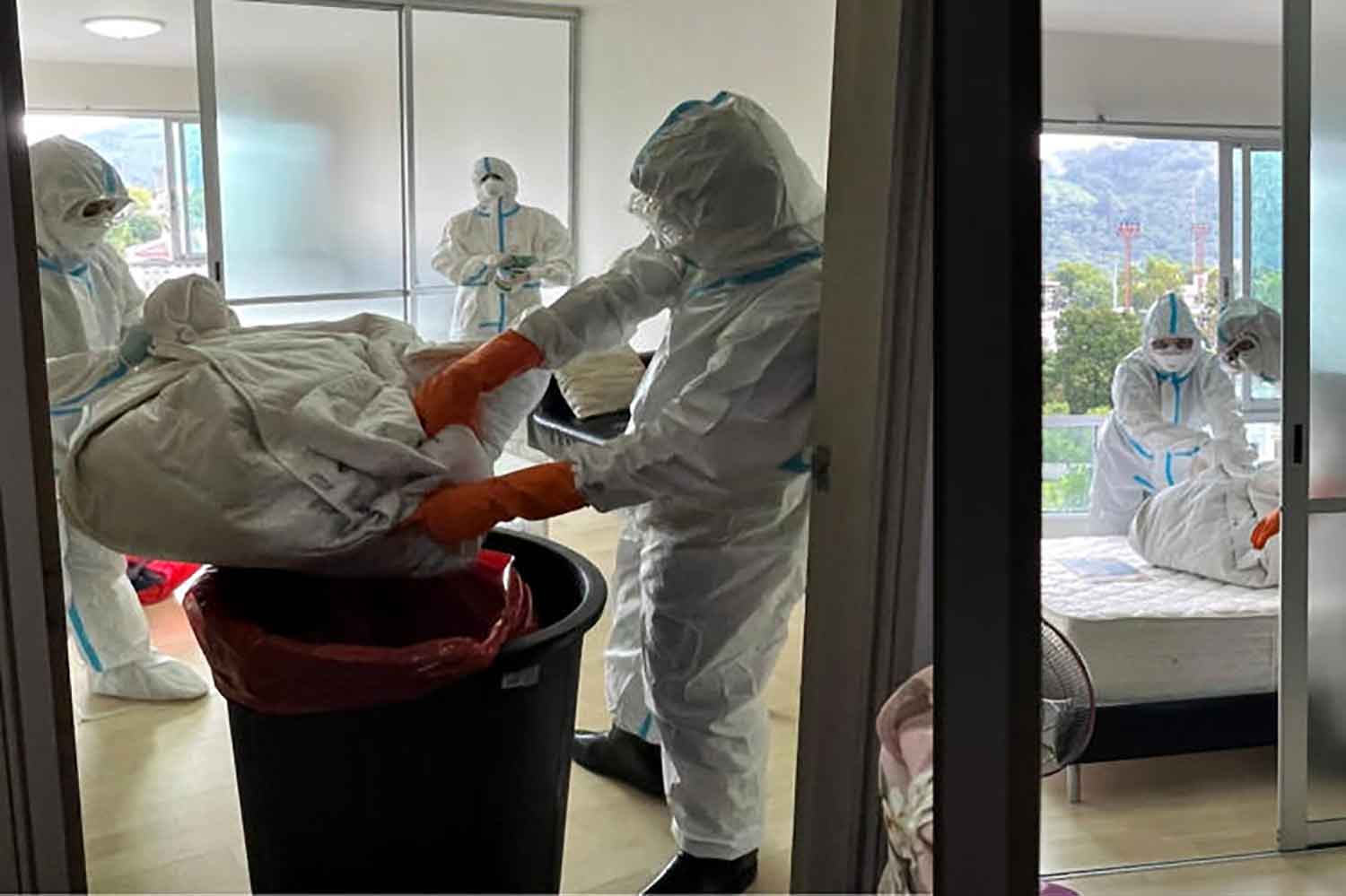
Thailand's third case of monkeypox has been found in Phuket, Department of Disease Control director-general Opas Karnkawinpong said on Wednesday.
Dr Opas said the latest monkeypox case is a 25-year-old German man who arrived in Phuket on July 18 as a tourist.
The man was believed to have caught the virus in another country because the incubation period is 21 days. Officials were tracking down people who had been in close contact with him, for examination, he said.
Dr Opas said the patient was found to have a fever, with blisters and a rash that began in his groin area before spreading to other parts of his body. The symptoms coincided with information from the World Health Organisation, that blisters and rashes are found around the genitalia of 98% of those infected, and most of them are homosexual or bisexual.
Phuket public health chief Kusak Kukiatikoon gave additional details on Wednesday afternoon.
Dr Kusak confirmed that the German patient arrived in Phuket with his Thai wife on July 18. He was not a homosexual or bisexual, he said.
While in Phuket, they had stayed with his wife's family in Muang district. The couple had gone out sightseeing but had not visited any entertainment venues.
On July 23-24 he developed a fever, a rash and blisters. By July 30-31 the rash and blisters had spread. They started in his genital area and had spread to his arms, hands and other parts of the body by Aug 1. On Tuesday he went to a hospital and took a blood test. He was then admitted for treatment.
There were initially seven people, including his wife and her family, who had been in close contact with him. None showed any symptoms. His wife had a blood test and was awaiting the result. She was in home isolation.
As for Thailand's first two monkeypox cases, a Nigerian man and a Thai man, Dr Opas said the two were recovering steadily without taking antiviral medication. The Nigerian was treated in Cambodia.
The Phuket public health office would give any further details on the third case, he said.
He said the Government Pharmaceutical Organisation had ordered monkeypox vaccine from abroad and delivery was expected this month. It would be for two groups of people - medical personnel and people in close contact with monkeypox patients up to 14 days previously.
Dr Opas stressed that people infected with monkeypox can recover unaided. It is not severe or easily transmitted, he said.
According to a worldwide infection report, of about 20,000 known patients only three had died. No deaths occurred among people with no prior chronic disease, he said.
Dr Somsak Akksilp, director-general of the Department of Medical Services, said people who suspect they may have been infected should get a medical examination within 24 hours. The result of a laboratory test would be known in three to four hours. Most patients do not need antiviral medication.
A proposal under consideration is that patients whose symptoms are not severe and do not have a chronic disease should be treated in home isolation, he added.







